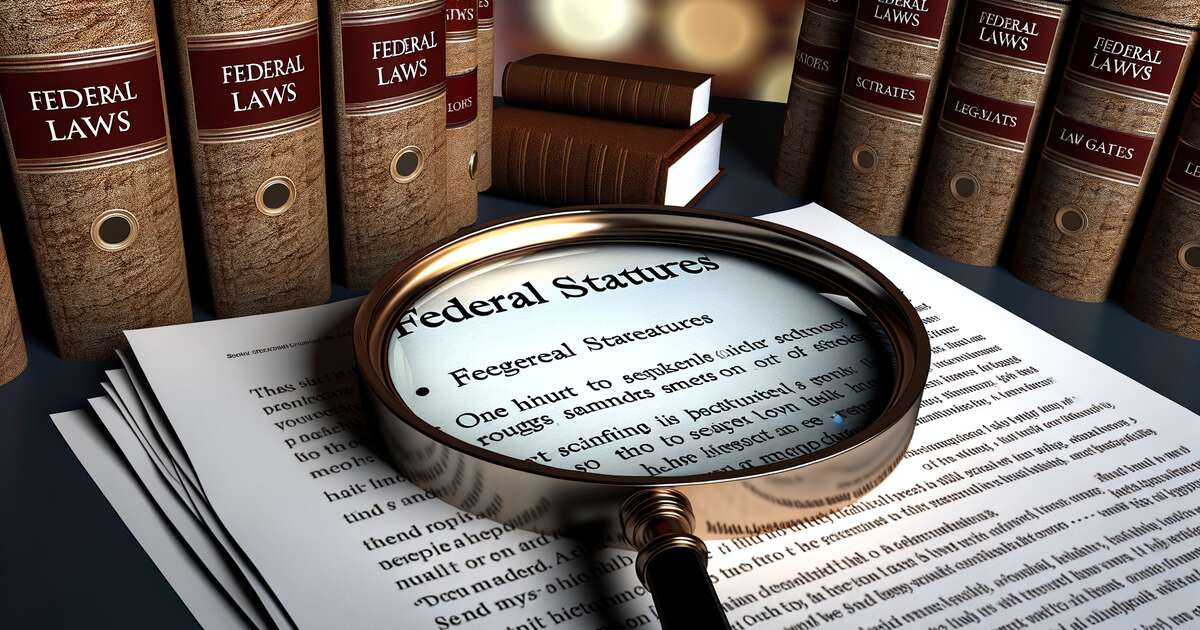
Navigating the complexities of Background Check Laws can often seem daunting. Whether you’re a business owner, HR professional, or just someone curious about how these laws affect everyday interactions, understanding the legal landscape is crucial. But don’t worry, we’ve got you covered with a comprehensive guide that breaks it all down, making it easy and manageable!
Why should you stay informed about Background Check Laws? Well, they play a significant role in many aspects of professional and personal life. From hiring processes to rental agreements, these laws ensure safety and fairness. Stick around as we explore the ins and outs of these regulations, help you comprehend their impact, and guide you through their application in everyday scenarios. 🕵️♂️
Overview of Background Check Laws in the USA
Understanding the landscape of Background Check Laws in the USA is crucial for anyone involved in the hiring process, whether you’re a business owner, HR professional, or a concerned individual. The laws not only help in maintaining safety and integrity within the workplace but also ensure fairness and privacy are upheld. So, what exactly shapes these regulations across different states?
At a federal level, the background check process is influenced by several key laws that provide a baseline on which individual states can build their regulations. These federal laws are designed to protect both the organization and the potential employees, preventing discrimination and promoting accuracy. Did you know that employers must comply with these laws to avoid legal repercussions? It’s a complex web that requires careful navigation.
Components of Background Check Laws
- Criteria for permissible background checks
- Rules for handling and disposing of background check information
- Regulations surrounding the fair use of background information
Moreover, the interplay between state and federal laws can be quite intricate. While federal laws create the framework, state laws can vary dramatically, adding an additional layer of complexity. Are you aware of how these laws differ in your state compared to others? Understanding this can help in ensuring compliance and in fostering a safe work environment.

Key Federal Laws Governing Background Checks
When it comes to understanding the complexity of Background Check Laws, it’s essential to begin with the key federal statutes that regulate them. These laws ensure that employment background screenings are conducted in a manner that is fair, equitable, and respects the privacy of individuals. But what exactly are these laws? Let’s dive into some of the most pivotal ones.
Fair Credit Reporting Act (FCRA)
The FCRA is perhaps the most well-known law governing the use of background checks by employers. It outlines how consumer reporting agencies should collect, disseminate, and use personal information. Compliance with FCRA is crucial; failure to do so can lead to significant legal penalties. Do you know if your employment practices are in line with FCRA requirements?
Equal Employment Opportunity Commission (EEOC) Guidelines
While not a law per se, the EEOC guidelines work in tandem with the FCRA. They protect against discriminatory practices during the hiring process. The guidelines advise employers on how to fairly incorporate background checks without violating anti-discrimination laws.
Americans with Disabilities Act (ADA)
The ADA prohibits discrimination against individuals with disabilities in all areas of public life, including job application procedures and hiring. It limits what employers can ask regarding medical or disability history, ensuring that background checks focus only on job-relevant information.
How State Background Check Regulations Differ
Navigating the maze of Background Check Laws across different states can be a complex endeavor. States often have unique regulations that dictate the specifics of conducting background checks. This variability can significantly impact employers, especially those operating in multiple states. Why does this matter? Because understanding these nuances is crucial to ensure compliance and protect your business from legal issues.
For instance, some states might restrict the use of criminal records in employment decisions to offenses that occurred within a certain number of years. Others might allow checks only for specific positions, such as those involving children or financial management. Did you realize the depth of differences from one state to another?
- California, for example, has ‘Ban the Box’ legislation, which prohibits asking about criminal history on initial job applications.
- Meanwhile, states like New York require employers to provide a copy of the background check report to the applicant if it’s part of the decision-making process.
- Texas does not have state-specific regulations for private employers, making it crucial to understand federal guidelines.
These variations not only affect how companies implement their hiring processes but also influence how applicants perceive their rights and protections under the law. Staying updated with the latest changes in state laws is not merely a good practice—it’s a necessity for maintaining compliance and fostering fair hiring practices. 📜✅

The Role of the Fair Credit Reporting Act (FCRA)
When it comes to background check laws, the Fair Credit Reporting Act (FCRA) plays a crucial role in setting the standards for how personal information is handled. But what exactly does this mean for individuals and businesses? The FCRA ensures that the information used in background checks is accurate, complete, and secure, providing essential protection for individuals against the misuse of their data.
This legislation is not just about protecting personal information; it also involves the rights of individuals to dispute and correct information if they believe it’s incorrect. Have you ever considered how these safeguards affect your life or your business? Ensuring compliance with the FCRA is not only a legal requirement but also a crucial element of maintaining trust and credibility in the professional world.
Key Components of the FCRA in Background Checks
- Requirements for obtaining consent before conducting a background check
- Guidelines on the permissible use of background check information
- Obligations to provide notices to individuals if their information is a factor in adverse decisions
The importance of the FCRA should never be underestimated as it underpins the ethical and legal landscape of background checks. Are you aware of your rights under the FCRA, or does your business follow its protocols diligently? Remember, a step as simple as understanding and implementing the FCRA’s guidelines can significantly mitigate legal risks and bolster your compliance strategy.
Implications of Non-Compliance with Background Laws
Failing to adhere to Background Check Laws can lead to serious consequences for businesses, making compliance a critical consideration. But what exactly happens when these laws are ignored?
Non-compliance can result in hefty fines, legal disputes, and a tainted reputation that may deter future talent and clients. Can you imagine the impact on your business if you were found non-compliant? It could be devastating not only financially but also to your brand’s credibility.
- Financial Penalties: These can vary significantly, depending on the severity of the violation and the specific regulations breached.
- Legal Challenges: Non-compliance can leave an organization vulnerable to lawsuits, especially from individuals who were unfairly treated due to improper or discriminatory background checks.
- Damaged Reputation: In today’s digitally connected world, news of non-compliance can spread quickly, potentially harming public perception and trust.
Ensuring compliance with Background Check Laws not only helps you avoid these risks but also reinforces your commitment to fair and legal hiring practices. Don’t you think it’s worth investing in thorough compliance measures to protect your business on multiple fronts?
Common Questions
How far back do background checks go in Wisconsin?
In Wisconsin, the depth of a background check can vary depending on the type of check being conducted and the specifics of the reporting guidelines. However, for criminal history checks, there is generally no restriction on how far back a check can go. Wisconsin adheres to the Fair Credit Reporting Act (FCRA), which governs background checks but does not impose a seven-year limit for criminal history. Therefore, any criminal record can potentially be reported regardless of when the offense occurred.
How far back does a background check go in Minnesota?
In Minnesota, background checks typically cover a scope defined by the hiring company or the purpose of the check. According to the Fair Credit Reporting Act (FCRA), criminal convictions can be reported with no time limit, whereas civil suits, civil judgments, and arrest records are reportable only for up to seven years. However, some exceptions exist, such as for positions with a salary over a certain threshold, where the seven-year cap does not apply. Thus, the depth of a background check in Minnesota depends largely on the specifics of each situation.
How far back do most criminal background checks go?
The reach of a criminal background check can vary depending on the state law and the company performing the check. Generally, under the Fair Credit Reporting Act (FCRA), there is no time restriction on reporting criminal convictions. Arrests that did not result in a conviction can only be reported up to seven years. Some states have laws that limit the reporting of older offenses, particularly for jobs that pay less than a certain amount. Therefore, the extent to which a criminal background check can reach back depends on these various factors.
What states do not do background checks?
All states in the U.S. permit background checks but may have different regulations and restrictions regarding how they are performed and what information can be accessed. No state completely bans background checks, as they are critical tools for employers, landlords, and other entities to assess the background of individuals for security and safety reasons. However, some states may have more restrictive laws protecting job applicants’ privacy, especially concerning criminal records and credit history. It’s important to consider specific state laws to understand the nuances in each state’s approach to background checks.
Best Practices for Employers Conducting Background Checks
Navigating the complexities of background check laws can be daunting for employers. Ensuring compliance while protecting both the business and potential new hires is critical. What are some of the best practices for employers conducting these checks? Let’s break down the essentials to keep your processes in line with legal requirements.
1. Develop a Standardized Background Check Policy
First and foremost, creating a standardized policy for conducting background checks is imperative. This policy should clearly outline the steps involved, the scope of the background check, and how the data will be used. It ensures consistency and fairness in the hiring process. A well-documented policy can also serve as a defense in case of any legal challenges.
The Fair Credit Reporting Act (FCRA) sets the baseline for how employers should conduct background checks. Are you fully compliant with its provisions? Compliance includes obtaining explicit written consent from the candidate before conducting the check, providing notice if the report will potentially affect their employment, and ensuring proper handling of any disputes that arise. Adhering to FCRA guidelines not only ensures legal compliance but also builds trust with your candidates.
3. Be Consistent Across All Candidates
Consistency is key in avoiding discrimination claims. Ensure that all candidates for the same position are subjected to the same scope of background checks. This avoids any biases or unfair advantages, fostering a fair hiring environment. Have you reviewed your procedures lately to ensure they reflect this commitment?
Final Notes: Understanding Background Check Laws
Navigating the complex terrain of Background Check Laws is crucial for businesses and individuals alike. With the insights and detailed explanations provided, you’re now better equipped to understand how these laws function and the significant impact they can have on employment practices. It’s all about ensuring transparency and fairness in our professional interactions, don’t you think?




